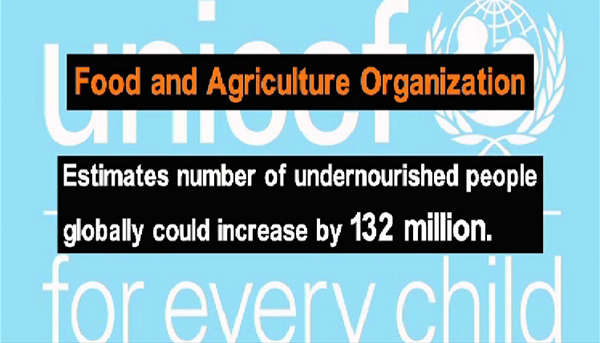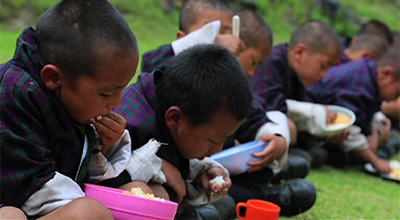 The economic impact of COVID-19 is threatening the malnutrition status of nearly two billion people in Asia and the Pacific. A joint press release issued by the UN agencies estimates that the number of undernourished people globally could increase by 132 million due to the impact of economic recession associated with COVID-19.
The economic impact of COVID-19 is threatening the malnutrition status of nearly two billion people in Asia and the Pacific. A joint press release issued by the UN agencies estimates that the number of undernourished people globally could increase by 132 million due to the impact of economic recession associated with COVID-19.
As per the joint press release, the economic impact of COVID-19 and the worsening inequalities will fuel malnutrition for billions in Asia and the Pacific. The press release issued by the Food and Agriculture Organization, the United Nations Children’s Fund, the World Food Programme, and the World Health Organization, says Child, Adolescent, and Maternal diets are more vulnerable.
According to the report, South Asia is already home to a vast majority of severely food-insecure people. Disruptions in the economic, food and health systems resulting from the COVID-19 pandemic are also expected to have impacts on all forms of malnutrition.
And assuming a decline of global GDP of ten per cent due to the impact of the economic recession associated with COVID-19, the Food and Agriculture Organization estimates that the number of undernourished people globally could increase by one 132 million.
The pandemic’s impact on the state of food security and nutrition in Bhutan is also equally of concern. The report states Bhutan’s food and nutrition security are fragile to events such as disasters and pandemics as the country still imports about 50 per cent of its total food consumption. Also, food prices have increased by approximately 15 per cent over the last year.
It also revealed that nutritious food such as eggs, fruits, and vegetables are often much more expensive than staples such as wheat, rice, and maize, which offer very little in terms of vitamins and minerals. And in times of crisis, vulnerable households have to give up nutrient-rich foods to preserve their caloric intake. The nutrition of Bhutanese people is likely to be affected by the pandemic as people shift diets to more affordable food and shelf-stable and pre-packaged foods, which are generally less nutritious.
 The report also found that School Feeding Programmes have been affected due to the nationwide lockdowns. With schools remaining closed for almost the entire academic year, over 64,000 students missed out on the fortified school meals.
The report also found that School Feeding Programmes have been affected due to the nationwide lockdowns. With schools remaining closed for almost the entire academic year, over 64,000 students missed out on the fortified school meals.
Likewise, the report also found out that 41 per cent of children less than five years are not growing well, wasted or overweight in the country. Nearly 35 per cent of children in Bhutan are stunted, almost six per cent under five years are suffering from wasting, over 11 per cent of children have low birth weight and over seven per cent of children under five are overweight.
In view of the report’s findings, UN agencies cautioned that the challenges in accessing quality and diversified nutrition services due to and during the pandemic will leave deep impacts on early life nutrition with possible intergenerational consequences for child growth and development, life-long impacts on education, chronic disease risks, and overall human capital formation.
As such, the report calls for a transformation of food systems in Asia and the Pacific, with an aim to increase the affordability of and families’ access to nutritious, safe, and sustainable diets. It also recommends governments to invest in nutrition and food safety in fresh and street food markets to promote healthy diets. It also calls for action within the private sector, as it has an important role to play in supporting the transformation of the food system and its value chains for achieving healthy diets.
Passang Dorji








